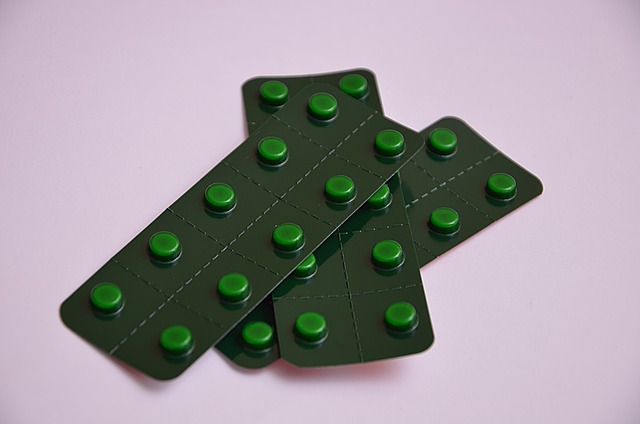Generalized Anxiety Disorder (GAD) is a common yet debilitating mental health condition characterized by excessive worry that interferes with daily life, causing physical and psychological symptoms. Anxiety treatment involves recognizing these signs and seeking professional help. Psychotherapy, particularly Cognitive-Behavioral Therapy (CBT), is highly effective in managing GAD by challenging negative thought patterns and teaching coping strategies. Other techniques like exposure therapy and mindfulness-based therapies (MBCT) also offer relief. Relaxation methods integrated into therapy sessions further enhance anxiety treatment. Building resilience through these therapeutic tools empowers individuals to manage symptoms, improve well-being, and regain control over their lives. Continuous support is crucial for long-term recovery in anxiety treatment for GAD.
Generalized Anxiety Disorder (GAD) is a common yet debilitating condition characterized by persistent, excessive worry and fear that interferes with daily life. This article explores psychotherapy as a comprehensive approach to treating GAD. We delve into various effective therapeutic techniques, including Cognitive-Behavioral Therapy (CBT), Exposure Therapy, mindfulness-based therapies, relaxation techniques, building resilience, and maintaining long-term relief through continuous support. Discover how these strategies can help manage anxiety symptoms and improve overall well-being.
Understanding Generalized Anxiety Disorder (GAD)

Generalized Anxiety Disorder (GAD) is a common yet debilitating mental health condition characterized by excessive and uncontrollable worry that permeates daily life. Individuals with GAD often experience a persistent sense of fear, unease, or tension, even when there’s no apparent reason for it. This anxiety can be overwhelming, affecting various aspects of an individual’s life, including their work, relationships, and overall well-being. The symptoms may include restlessness, muscle tension, fatigue, difficulty concentrating, irritability, and sleep disturbances.
Understanding GAD is the first step towards effective anxiety treatment. It’s important to recognize that this disorder goes beyond typical worry or stress. Professional help from therapists and counselors can provide much-needed support. Through psychotherapy, individuals learn coping strategies, challenge negative thought patterns, and gain insights into managing their anxiety in a healthier way. With the right approach, those affected by GAD can lead fulfilling lives free from its constant grip.
Common Symptoms and Impact on Daily Life

The symptoms of generalized anxiety disorder (GAD) can significantly impact an individual’s daily life, often leading to a cycle of worry and stress that feels impossible to break. Common signs include persistent, excessive, and intrusive thoughts related to various aspects of life, such as work, health, or everyday routines. Individuals with GAD may also experience physical symptoms like restlessness, muscle tension, fatigue, difficulty concentrating, irritability, and sleep disturbances. These symptoms can worsen over time, affecting performance at school or work, damaging relationships, and reducing overall quality of life.
The impact extends beyond the individual as worries and anxieties can spread to those around them. Family members and friends may feel the strain, leading to a supportive yet stressful environment. Recognizing these symptoms is crucial for seeking effective anxiety treatment. Psychotherapy, in particular, has shown remarkable success in managing GAD by helping individuals identify and change unhelpful thinking patterns and behaviors, ultimately reducing anxious thoughts and improving overall well-being.
Psychotherapy: A Comprehensive Approach to GAD Treatment

Psychotherapy plays a pivotal role in the comprehensive approach to treating Generalized Anxiety Disorder (GAD). It offers individuals affected by persistent and excessive worry a safe space to explore and understand their anxiety-driven thoughts and behaviors. Through various therapeutic techniques, such as cognitive-behavioral therapy (CBT), clients learn to challenge negative thought patterns, manage stress, and develop coping strategies tailored to their unique needs.
This personalized approach empowers individuals to gain insights into the underlying causes of their anxiety, fostering a sense of self-awareness and control. By combining psychotherapy with other evidence-based treatments like medication management, individuals can effectively reduce symptoms, improve overall well-being, and enhance their quality of life.
Cognitive-Behavioral Therapy (CBT): Unwinding Anxious Thought Patterns

Cognitive-Behavioral Therapy (CBT) is a highly effective anxiety treatment approach for Generalized Anxiety Disorder (GAD). It focuses on identifying and modifying negative thought patterns and behaviors that contribute to excessive anxiety. Through CBT, individuals learn to challenge and replace irrational thoughts with more realistic and balanced perspectives. This process helps them manage anxiety symptoms and reduce the impact of worrying on their daily lives.
During CBT sessions, therapists help patients recognize when they are engaging in anxious thinking and provide tools to disrupt these thought patterns. By practicing mindfulness and cognitive reframing techniques, individuals can gradually change their response to stressful situations. This leads to improved emotional well-being and a greater sense of control over their anxiety, making CBT a powerful tool for managing GAD effectively.
Exposure Therapy: Confronting Fears in a Safe Environment

Exposure therapy is a powerful technique within psychotherapy for generalized anxiety disorder (GAD). It focuses on gradually exposing individuals to situations or objects they fear in a safe and controlled environment. This process helps patients confront their anxieties step by step, allowing them to realize that their feared outcomes are unlikely to occur. Over time, this reduces the intensity of anxiety responses until the individual can face their fears without discomfort.
By repeatedly facing and managing anxiety-provoking situations, individuals learn coping strategies and gain a deeper understanding of their fears. This cognitive restructuring process empowers patients to challenge negative thought patterns associated with GAD, leading to improved mental well-being. Exposure therapy has proven effective in reducing anxiety symptoms and enhancing overall quality of life for those suffering from generalized anxiety disorders, making it a key component in anxiety treatment.
Mindfulness-Based Therapies for Anxiety Reduction

Mindfulness-based therapies have emerged as a powerful tool in the arsenal against generalized anxiety disorder (GAD). These therapeutic approaches focus on training individuals to be fully present and aware of their thoughts and feelings, accepting them non-judgmentally. By cultivating mindfulness, patients learn to observe anxious thoughts without reacting impulsively, helping to reduce the intensity and frequency of anxiety symptoms.
One popular form of mindfulness-based therapy for anxiety treatment is Mindfulness-Based Cognitive Therapy (MBCT). It combines cognitive-behavioral techniques with mindfulness exercises, enabling individuals to challenge unhelpful thought patterns associated with GAD. Through regular practice, mindfulness meditation helps patients develop a deeper understanding of their anxiety triggers and fosters a sense of calm, ultimately leading to improved coping strategies for managing symptoms effectively.
Integrating Relaxation Techniques into Therapy Sessions

Incorporating relaxation techniques into psychotherapy sessions is a powerful strategy for managing generalized anxiety disorder (GAD). These techniques, such as deep breathing exercises, progressive muscle relaxation, and meditation, are essential tools in empowering individuals to regulate their anxious responses. During therapy, therapists can guide clients through these practices, helping them learn to recognize and disrupt the mental and physical patterns associated with anxiety. Regular integration of relaxation methods allows for a significant reduction in symptoms, making it an integral part of an effective anxiety treatment plan.
By combining traditional psychotherapy approaches with relaxation techniques, therapists enable individuals with GAD to develop coping mechanisms that promote calmness and reduce avoidance behaviors. This multifaceted strategy not only addresses the underlying causes of anxiety but also provides clients with practical tools to manage their symptoms effectively. As a result, patients can experience improved overall well-being and a greater sense of control over their lives.
Building Resilience and Coping Strategies

Building resilience is a key aspect of psychotherapy for Generalized Anxiety Disorder (GAD). Through therapy, individuals learn to face their fears and challenges head-on, developing coping strategies that empower them to manage anxiety symptoms effectively. Cognitive Behavioral Therapy (CBT), for instance, teaches patients to identify and challenge negative thought patterns, replacing them with more realistic and positive ones. This process helps in reducing the intensity of anxiety responses over time.
Coping strategies taught during psychotherapy include mindfulness techniques, deep breathing exercises, progressive muscle relaxation, and problem-solving skills. These tools enable individuals to stay calm and focused under stressful situations, thereby minimizing the impact of anxiety. By building resilience and adopting these effective coping mechanisms, individuals can enhance their overall well-being and improve their quality of life in managing GAD symptoms.
Continuous Support and Maintenance for Long-Term Relief

For many individuals suffering from generalized anxiety disorder (GAD), continuous support and maintenance are essential for long-term relief. Psychotherapy, particularly cognitive-behavioral therapy (CBT), plays a pivotal role in this process. CBT equips individuals with coping strategies to manage anxiety by challenging negative thought patterns and behaviors. This ongoing therapeutic support helps patients maintain the progress made during initial treatment sessions, ensuring that they continue to navigate life’s challenges with enhanced resilience against anxiety symptoms.
Regular check-ins with mental health professionals or participation in support groups facilitate continuous monitoring of anxiety levels and the effectiveness of coping strategies. These maintenance phases are crucial because they prevent relapse and reinforce positive changes. By integrating learned techniques into daily routines, individuals can independently manage their anxiety over the long term, leading to improved overall well-being and a higher quality of life.
